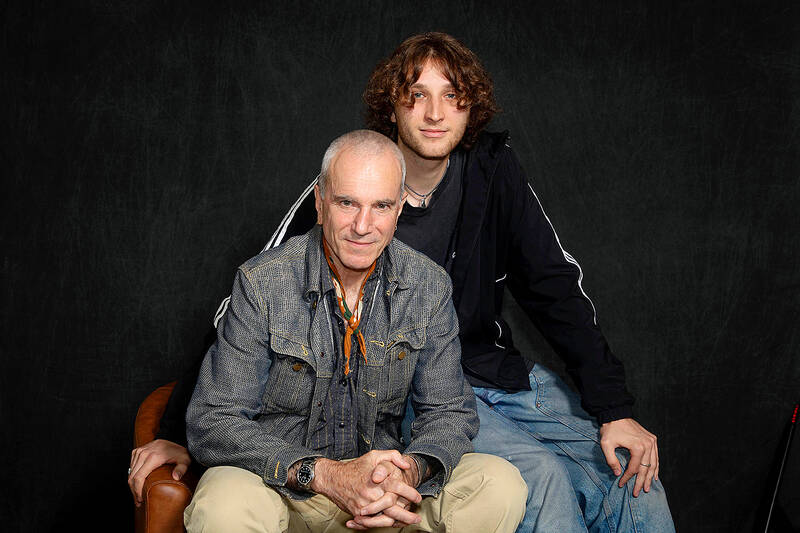Daniel Day-Lewis has spoken out over being drawn into what he called a “handbags at dawn conflict” with fellow actor Brian Cox over method acting.
Speaking to the Big Issue, Day-Lewis reflected on his commitment to the technique being pitted against the skepticism of Cox, who had made disparaging remarks about the approach adopted by actors including his Succession co-star Jeremy Strong, suggesting he’d found his on-set behavior “irritating.”
“Listen, I worked with Brian Cox once and got somehow drawn into this handbags at dawn conflict inadvertently,” said Day-Lewis. “Brian is a very fine actor who’s done extraordinary work. As a result, he’s been given a soapbox … which he shows no sign of climbing down from. Any time he wants to talk about it, I’m easy to find.

Photo: AP
“If I thought during our work together I’d interfered with his working process, I’d be appalled. But I don’t think it was like that. So I don’t know where the fuck that came from. Jeremy Strong is a very fine actor, I don’t know how he goes about things, but I don’t feel responsible in any way for that.”
Day-Lewis’s unhappiness with the representation of method acting — whereby an actor immerses themselves in their character both on and off set — has become apparent on the press tour for his new film, Anemone.
He has addressed the issue in most, if not all, of his recent interviews. Appearing at the BFI Southbank last month, Day-Lewis said “recent commentary” about the technique “is invariably from people who have little or no understanding of what it actually involves. It’s almost as if it’s some specious science that we’re involved in, or a cult.”
He told the Big Issue: “I can’t think of a single commentator who’s gobbed off about the method that has any understanding of how it works and the intention behind it.
“They focus on, ‘Oh, he lived in a jail cell for six months’ [for 1993 film In the Name of the Father]. Those are the least important details. In all the performing arts, people find their methods as a means to an end. It’s with the intention of freeing yourself so you present your colleagues with a living, breathing human being they can interact with. It’s very simple.
“So it pisses me off this whole, ‘Oh, he went full method,’ thing … Because it’s invariably attached to the idea of some kind of lunacy.”
Day-Lewis went on to contrast his own on-set professionalism with that of some of his colleagues, who instead spend their time playing pranks.
“I choose to stay and splash around,” said Day-Lewis, “rather than jump in and out or play practical jokes with whoopee cushions between takes or whatever people think is how you should behave as an actor.”

This is the year that the demographic crisis will begin to impact people’s lives. This will create pressures on treatment and hiring of foreigners. Regardless of whatever technological breakthroughs happen, the real value will come from digesting and productively applying existing technologies in new and creative ways. INTRODUCING BASIC SERVICES BREAKDOWNS At some point soon, we will begin to witness a breakdown in basic services. Initially, it will be limited and sporadic, but the frequency and newsworthiness of the incidents will only continue to accelerate dramatically in the coming years. Here in central Taiwan, many basic services are severely understaffed, and

Jan. 5 to Jan. 11 Of the more than 3,000km of sugar railway that once criss-crossed central and southern Taiwan, just 16.1km remain in operation today. By the time Dafydd Fell began photographing the network in earnest in 1994, it was already well past its heyday. The system had been significantly cut back, leaving behind abandoned stations, rusting rolling stock and crumbling facilities. This reduction continued during the five years of his documentation, adding urgency to his task. As passenger services had already ceased by then, Fell had to wait for the sugarcane harvest season each year, which typically ran from

It is a soulful folk song, filled with feeling and history: A love-stricken young man tells God about his hopes and dreams of happiness. Generations of Uighurs, the Turkic ethnic minority in China’s Xinjiang region, have played it at parties and weddings. But today, if they download it, play it or share it online, they risk ending up in prison. Besh pede, a popular Uighur folk ballad, is among dozens of Uighur-language songs that have been deemed “problematic” by Xinjiang authorities, according to a recording of a meeting held by police and other local officials in the historic city of Kashgar in

It’s a good thing that 2025 is over. Yes, I fully expect we will look back on the year with nostalgia, once we have experienced this year and 2027. Traditionally at New Years much discourse is devoted to discussing what happened the previous year. Let’s have a look at what didn’t happen. Many bad things did not happen. The People’s Republic of China (PRC) did not attack Taiwan. We didn’t have a massive, destructive earthquake or drought. We didn’t have a major human pandemic. No widespread unemployment or other destructive social events. Nothing serious was done about Taiwan’s swelling birth rate catastrophe.